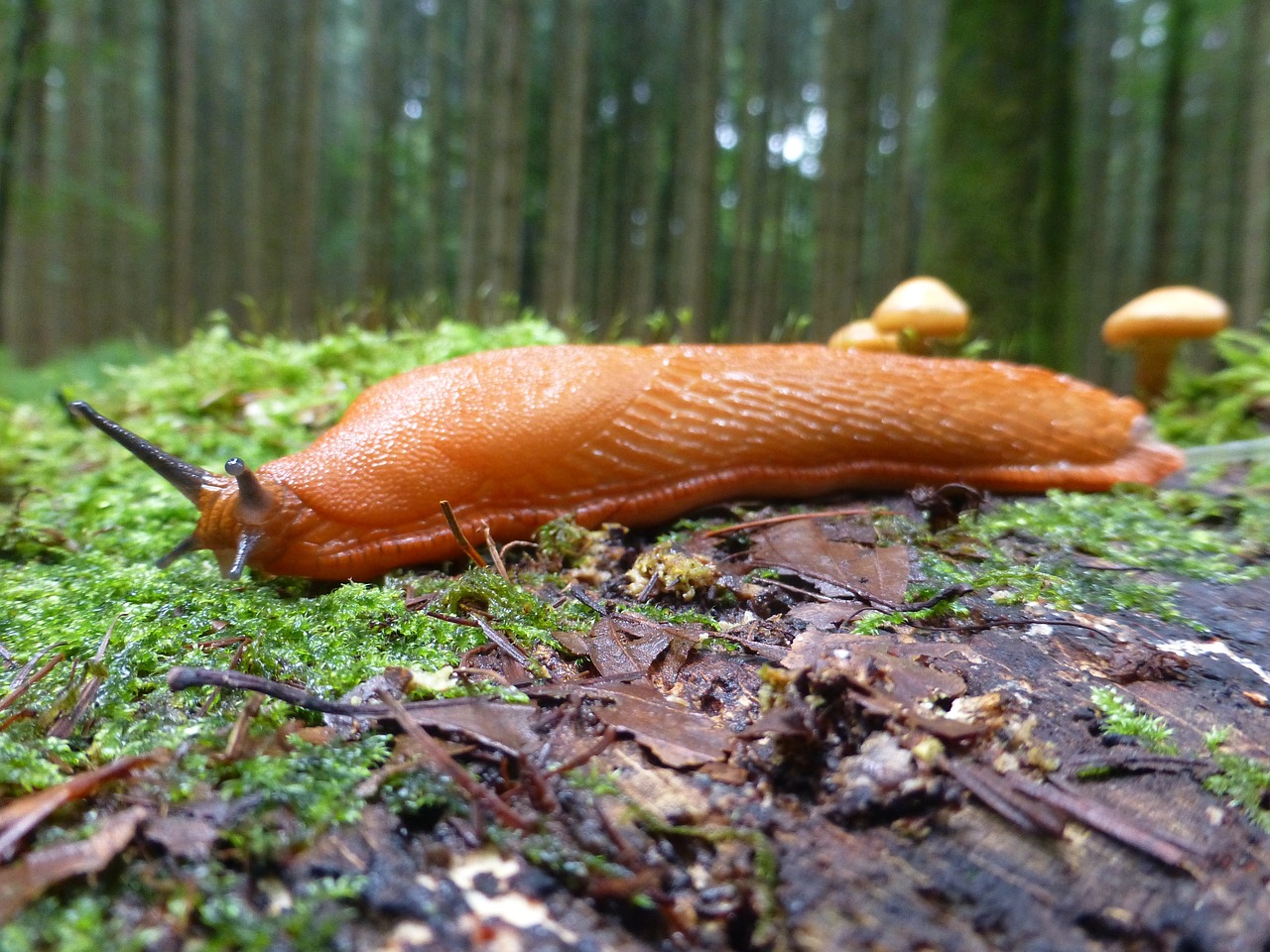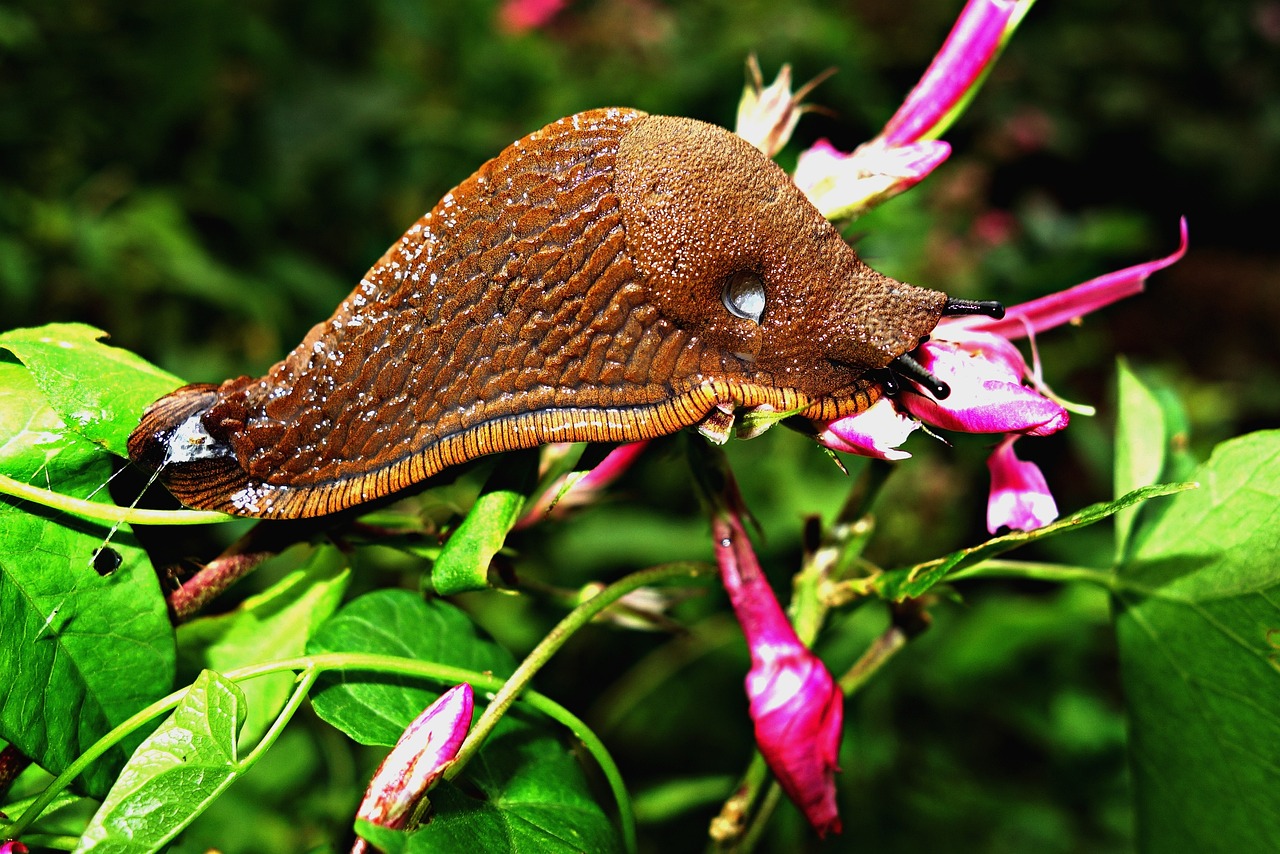
Have you ever woken up to find your prized hostas looking like they’d been ravaged by a cheese grater? Or perhaps your petunias or vegetables are mysteriously wilting overnight? The culprit? Those slimy soldiers of the night – slugs and snails. These unwelcome guests can wreak havoc on your beautiful garden, leaving a trail of destruction in their wake. But fear not, fellow gardener! There’s no need to resort to harsh chemicals. With a little ingenuity and some natural deterrents, you can turn the tide in this slimy war and reclaim your garden paradise.
This post may have affiliate links. This means that sometimes when you click a link on our site and make a purchase on Amazon, we may earn a small commission at no additional cost to you. We only recommend products we truly believe in, and your support helps keep us running!
Understanding the Enemy: Slug and Snail Secrets

Before we go into the battle tactics, let’s get to know our adversaries. Slugs and snails are gastropods, mollusks with soft bodies encased in a shell (snails) or lacking one altogether (slugs). They thrive in moist environments, munching on leaves and flowers under the cloak of darkness. Their slime trail acts as a lubricant, allowing them to glide effortlessly across the ground. While some species are beneficial decomposers, the garden variety can be quite destructive.
Banishing the Banquet: Making Your Garden Unpleasant for Slugs and Snails
The first line of defense is to create an environment that’s less than five-star for these slimy invaders. Here are some ways to make your garden a gastropod graveyard:
- Habitat Denial: Slugs and snails love to hide in cool, damp places. Remove debris piles, fallen leaves, and overgrown areas where they can lurk during the day. Let sunshine penetrate the garden floor by trimming back overhanging foliage. Good air circulation discourages them from setting up camp.
- The Great Wall of Unpleasantness: Create a physical barrier around your precious plants. Crushed eggshells, with their sharp edges, are a natural deterrent. Sprinkle a ring around your plants, but be mindful not to damage delicate stems. Diatomaceous earth, a powder made from fossilized algae, is another option. However, caution is advised, as it can irritate skin and lungs. Wear gloves and a mask when handling it. Sharp gravel or crushed recycled glass can also form a formidable barrier.
- Copper Power: Slugs and snails have an aversion to copper. Installing copper tape around raised or plant pot creates an electrified (for them, not literally) fence they won’t want to cross.
Trapping the Traitors: Luring and Liquidating
For a more proactive approach, consider setting traps to capture and eliminate these slimy mollusks. Here are a few crafty creations:
- The Beer Garden (For Slugs, Not You): Slugs find the yeasty scent of beer irresistible. Fill a shallow container (like a yogurt cup with holes poked in the bottom) with beer and bury it level with the soil. The slugs will crawl in for a boozy demise. Remember to empty and reset the trap regularly.
- Board and Breakfast (Last Meal Included): Slugs and snails seek shelter during the day. Place damp pieces of cardboard or wood around your garden. Check underneath them daily and dispose of any unwelcome guests you find.
- Citrus Surprise: The acidic nature of citrus peels is unpleasant for slugs and snails. Scatter orange or grapefruit peels around your plants, replacing them as they dry out.
Befriend the Beneficials: Nature’s Pest Patrol
Nature has its own way of keeping these slimy creatures in check. Here’s how to attract beneficial predators to your garden:
- A haven for Hedgehogs: These spiny garden guardians love to feast on slugs and snails. Create a hedgehog haven in your garden with a pile of logs and leaves.
- Birding Bonanza: Birds like thrushes and robins enjoy a slug snack. Encourage them to visit your garden by installing bird feeders and birdhouses.
- The Mighty Beetle Brigade: Ground beetles are natural predators of slugs and snails. Attract them by maintaining a healthy layer of mulch in your garden beds.
Slug-Stopping Plants: Repelling with Greenery
Some plants are nature’s built-in slug and snail repellents. Here are a few to consider incorporating into your garden design:
- The Aromatic Offensive: Herbs with strong scents, like lavender, rosemary, thyme, and mint, deter these slimy invaders. Plant them around the perimeter of your garden beds or interweave them with your other plants.
- The Beauty and the Bite: Certain beautiful flowering plants like foxgloves, poppies, and geraniums are unpalatable to slugs and snails.
- The Prickly Path: Plants with fuzzy or hairy leaves, such as lamb’s ear and lungwort, are unpleasant for slugs and snails to crawl over.
Water Wisely: Moisture Management Matters
Slugs and snails thrive in moist environments. While your plants need water to survive, proper watering techniques can make a big difference in the slug war.
- Water at the Base: Avoid overhead watering, which creates a damp haven for these slimy creatures. Instead, water directly at the base of your plants, allowing the soil to dry slightly between waterings.
- Morning Moisture: If possible, water your plants early in the morning. This allows the soil to dry out throughout the day, making it less hospitable for slugs and snails come nightfall.
Going Organic: Slug-Specific Solutions
For stubborn infestations, there are a few organic options available. However, remember to always follow the instructions on the label carefully and prioritize using these methods sparingly:
- Iron Phosphate Bait: This natural bait attracts slugs and snails, but is harmless to humans, pets, and most wildlife. The iron disrupts their digestive system, leading to death. However, be mindful of its impact on beneficial insects like beetles.
- Homemade Sprays: Sprays made with diluted vinegar or garlic water can be somewhat effective deterrents. However, these sprays can also damage your plants and need to be reapplied frequently after rain or watering.
Conclusion: A Garden Victorious
Employing a combination of these natural methods, you can effectively deter, trap, and eliminate slugs and snails from your garden. Remember, consistency is key. Regularly monitor your garden for signs of damage and repeat these tactics as needed.
With a little patience and these eco-friendly strategies, you can reclaim your garden from the slimy invaders and create a thriving haven for your favorite plants. After all, a healthy garden shouldn’t be a battleground, but a beautiful sanctuary for all the good creatures (and humans) to enjoy.
